第60章 THE LETTER(2)
Mary offered to lend the little she possessed; but my mother declined it, saying that we must begin on an economical plan; and she hoped that the whole or part of mine, added to what we could get by the sale of the furniture, and what little our dear papa had contrived to lay aside for her since the debts were paid, would be sufficient to last us till Christmas; when, it was hoped, something would accrue from our united labours. It was finally settled that this should be our plan; and that inquiries and preparations should immediately be set on foot; and while my mother busied herself with these, I should return to Horton Lodge at the close of my four weeks' vacation, and give notice for my final departure when things were in train for the speedy commencement of our school.
We were discussing these affairs on the morning I have mentioned, about a fortnight after my father's death, when a letter was brought in for my mother, on beholding which the colour mounted to her face - lately pale enough with anxious watchings and excessive sorrow. 'From my father!' murmured she, as she hastily tore off the cover. It was many years since she had heard from any of her own relations before. Naturally wondering what the letter might contain, I watched her countenance while she read it, and was somewhat surprised to see her bite her lip and knit her brows as if in anger. When she had done, she somewhat irreverently cast it on the table, saying with a scornful smile, - 'Your grandpapa has been so kind as to write to me. He says he has no doubt I have long repented of my "unfortunate marriage," and if I will only acknowledge this, and confess I was wrong in neglecting his advice, and that I have justly suffered for it, he will make a lady of me once again - if that be possible after my long degradation - and remember my girls in his will. Get my desk, Agnes, and send these things away: I will answer the letter directly. But first, as Imay be depriving you both of a legacy, it is just that I should tell you what I mean to say. I shall say that he is mistaken in supposing that I can regret the birth of my daughters (who have been the pride of my life, and are likely to be the comfort of my old age), or the thirty years I have passed in the company of my best and dearest friend; - that, had our misfortunes been three times as great as they were (unless they had been of my bringing on), I should still the more rejoice to have shared them with your father, and administered what consolation I was able; and, had his sufferings in illness been ten times what they wore, I could not regret having watched over and laboured to relieve them; - that, if he had married a richer wife, misfortunes and trials would no doubt have come upon him still; while I am egotist enough to imagine that no other woman could have cheered him through them so well: not that I am superior to the rest, but I was made for him, and he for me; and I can no more repent the hours, days, years of happiness we have spent together, and which neither could have had without the other, than I can the privilege of having been his nurse in sickness, and his comfort in affliction.
'Will this do, children? - or shall I say we are all very sorry for what has happened during the last thirty years, and my daughters wish they had never been born; but since they have had that misfortune, they will be thankful for any trifle their grandpapa will be kind enough to bestow?'
Of course, we both applauded our mother's resolution; Mary cleared away the breakfast things; I brought the desk; the letter was quickly written and despatched; and, from that day, we heard no more of our grandfather, till we saw his death announced in the newspaper a considerable time after - all his worldly possessions, of course, being left to our wealthy unknown cousins.